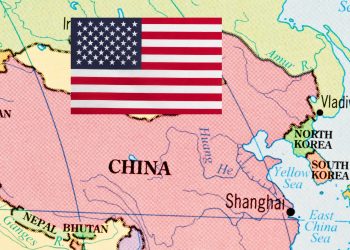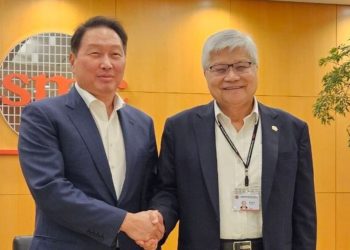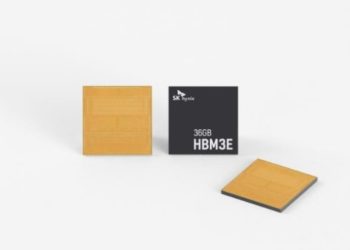SK Hynix Inc. has initiated an internal investigation following the revelation that its memory and flash storage chips are integrated into Huawei Technologies Co.’s latest smartphone.
This comes in the wake of a teardown of the device that uncovered SK Hynix components within, raising questions about the Korean semiconductor manufacturer’s involvement with the U.S.-sanctioned Huawei.
The news of SK Hynix’s memory chips being employed in Huawei’s smartphone had an immediate impact on the company’s shares, with a drop witnessed on Friday. SK Hynix responded promptly by confirming that it was not previously aware of its mobile memory chips being utilized in Huawei’s newest smartphone.
As a result, the company has commenced an internal investigation into this matter, shedding light on a potential development with broader implications within the technology industry.
The use of Hynix’s LPDDR5 and NAND flash memory in the device stands as an exception within a smartphone primarily furnished by Chinese suppliers, highlighting the significance of this discovery in the tech industry.
The source of Huawei’s procurement of SK Hynix’s memory chips remains unclear, given the significant restrictions imposed on the Chinese tech giant by U.S. trade curbs.
Hynix produces a substantial portion of its DRAM for global markets at its Chinese facilities. One plausible scenario is that Huawei might have accessed a reserve of components acquired as early as 2020, prior to the comprehensive U.S. trade restrictions.
Over the past three years, international suppliers of advanced technology have been restrained from providing Huawei with such components, as U.S. concerns revolved around their potential utilization in supporting China’s military capabilities.
The U.S. government has expressed its intent to gather more information regarding the chip technology employed in the Mate 60 Pro. U.S. National Security Adviser Jake Sullivan indicated a need for a deeper understanding of the chip’s characteristics and composition, signaling heightened scrutiny over the situation.
Read more from KoreaTechToday:







